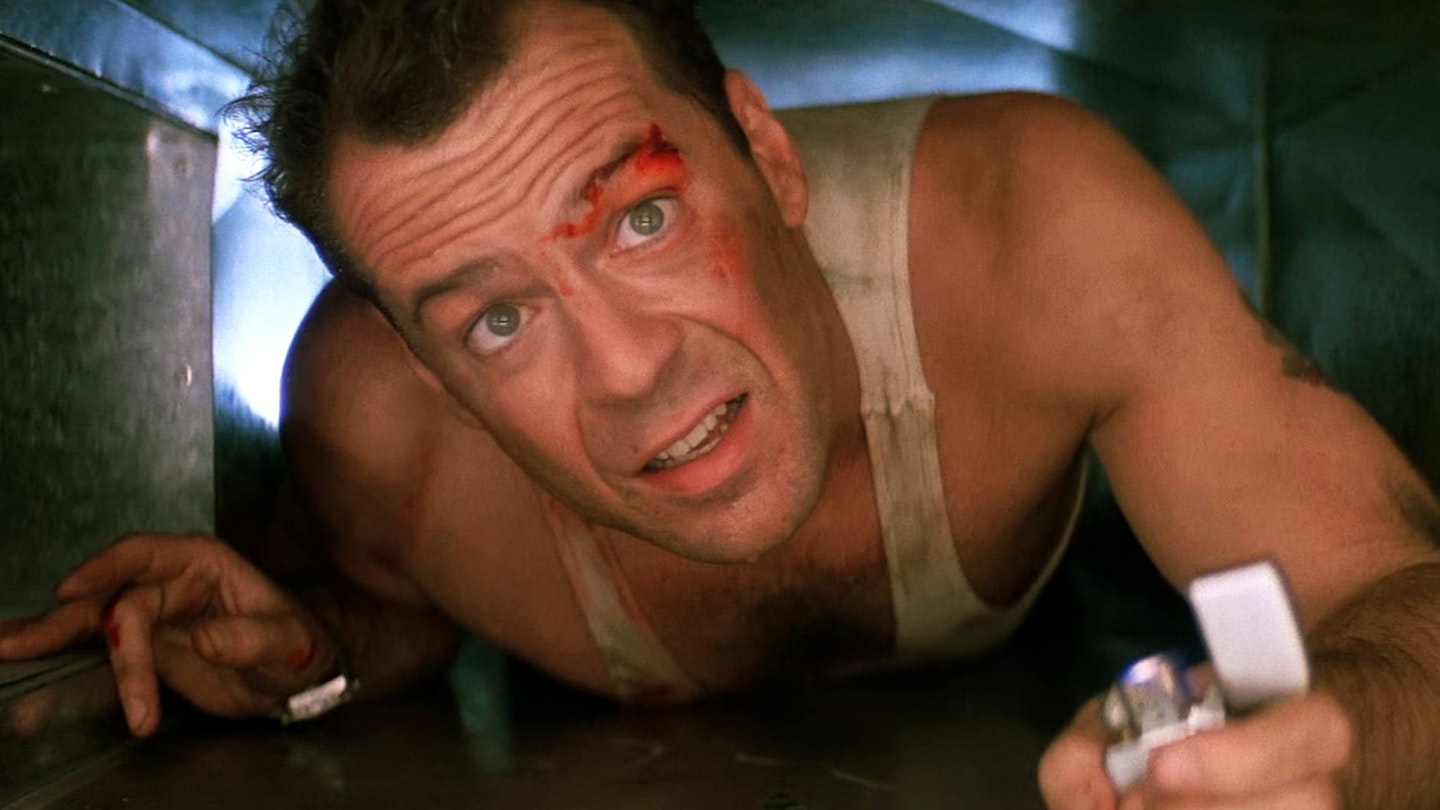From blues singer to bullet-splaying action hero, the legendary Bruce Willis has had quite the career. Whether he’s blowing shit up, getting entangled in mind-bending sci-fi tales, or playing it straight in emotionally-driven dramas, Willis has long proved a versatile screen performer – one able to play both super-capable tough guys, and ordinary men dealing with all the curveballs life (and death) throws. From Die Hard and Pulp Fiction, to The Sixth Sense and Looper, his time on screen encompasses years of classic cinema, working with incredible directors through decades of an ever-changing Hollywood landscape.
With the news that Willis is retiring due to the onset of aphasia, Empire is revisiting his greatest roles – and there are plenty of them, from the hard-bitten action icons his name immediately brings to mind, to the quieter more reflective performances that show just how talented he was at portraying deep, complex emotions. His time on the big screen might be coming to an end, but his work is here to stay. Yippee-Ki-Yay, Bruce.
Bruce Willis' 17 Greatest Roles
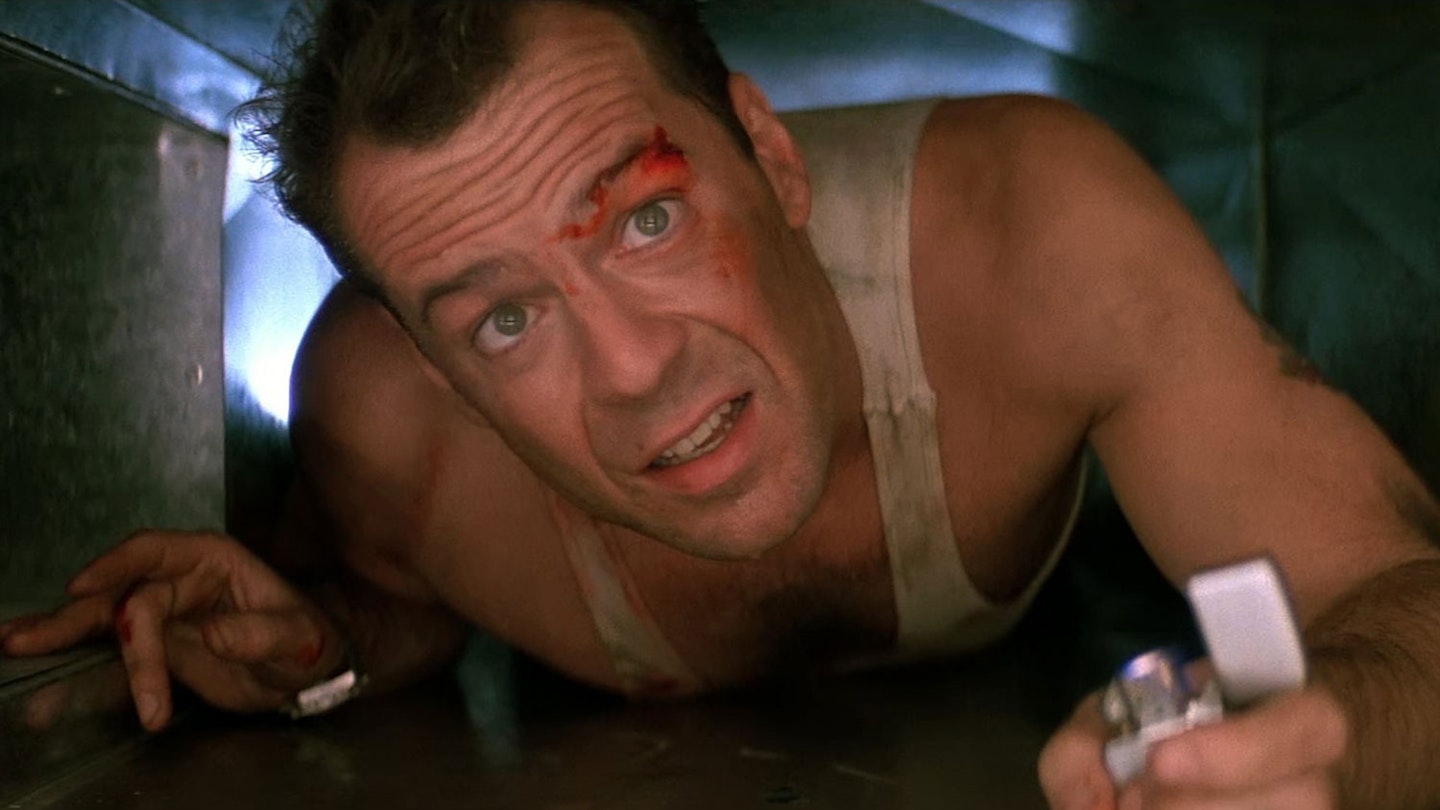 1 of 17
1 of 17John McClane (Die Hard / Die Hard 2 / Die Hard With A Vengeance / Die Hard 4.0 / A Good Day To Die Hard)
Nobody wanted Bruce Willis to star in Die Hard. Twentieth Century Fox didn't, offering the role first to everyone from Richard Gere to Sylvester Stallone. Director John McTiernan didn't, put off initially by Willis' quippy stylings in Moonlighting. Not even Willis wanted it, demanding an unprecedented $5 million to do it, or he'd walk and make some commercials in Japan instead. When the desperate bosses at Fox finally agreed to pay it, he shrugged and told Moonlighting creator Glenn Gordon Caron, "They're paying me so much money that even if it doesn't work out, I'm okay."As we all know, of course, it did work out — and then some. Willis' vulnerable everyman John McClane shocked the action genre with a jolt of juice, a fresh alternative to the muscled hulks who had been dominating blockbusters at the time. As the bare-footed hero nimbly dodged every peril thrown at him, prevailing against both well-armed villains and antagonistic law enforcement types, a brand new action star was born, and action movies were never the same again. Yippee-ki-yay indeed.Read the Empire review ofDie Hard.
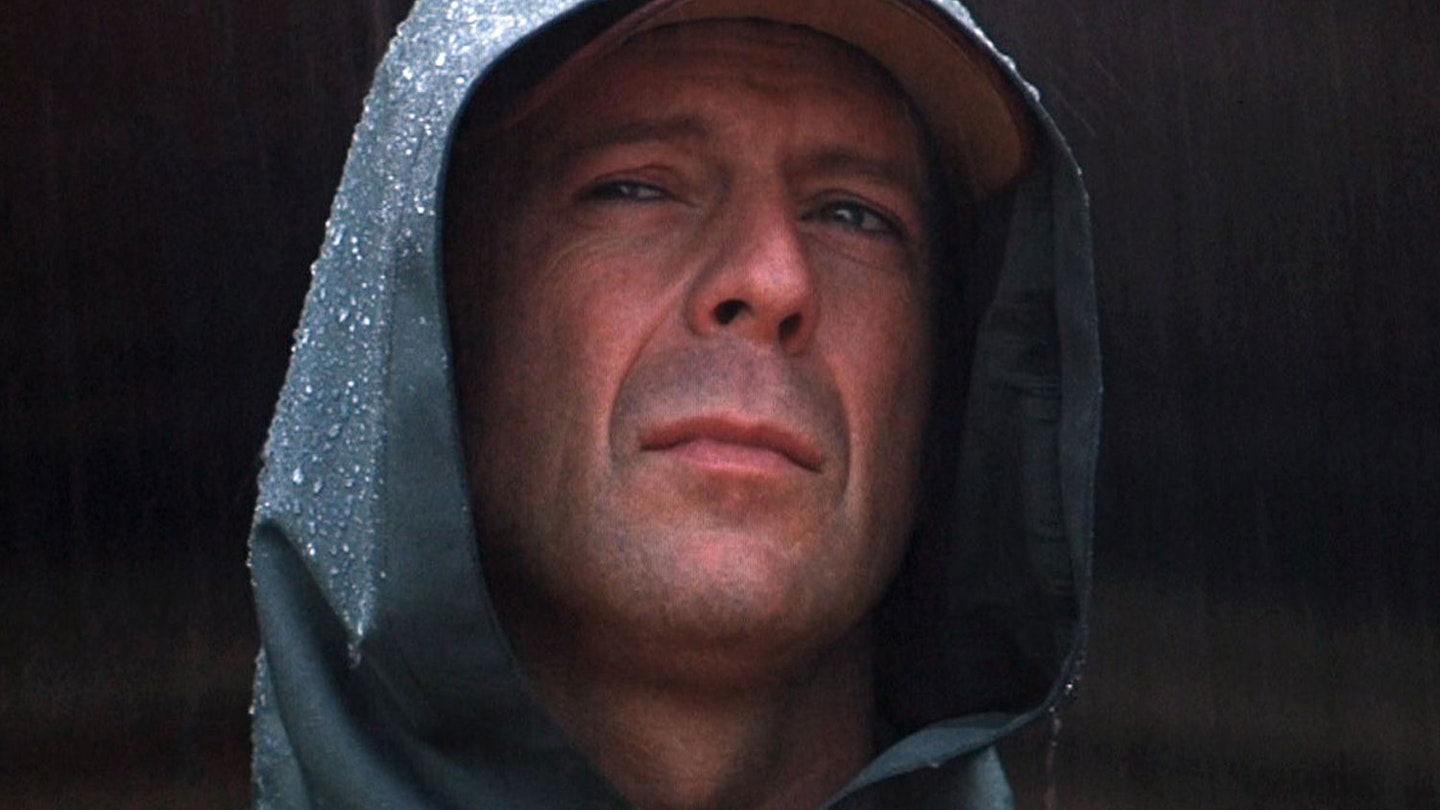 2 of 17
2 of 17David Dunn (Unbreakable / Split / Glass)
When Bruce Willis' second M. Night Shyamalan collaboration first arrived, it wasn't obvious that the super-strong David Dunn would be a recurring character in his career. But over a decade later, after Unbreakable had become lauded as an undersung cult classic, a surprise Willis cameo at the end of Shyamalan's 2016 horror Split confirmed that it was all part of the same universe, leading to 2019's climactic showdown Glass. Dunn is a fascinating character – a neat fit for Willis' taciturn oeuvre, but also a deconstruction of the typical superhero aesthetic. Willis toes the line carefully between ordinary man and extraordinary abilities.Read the Empire review ofUnbreakable.
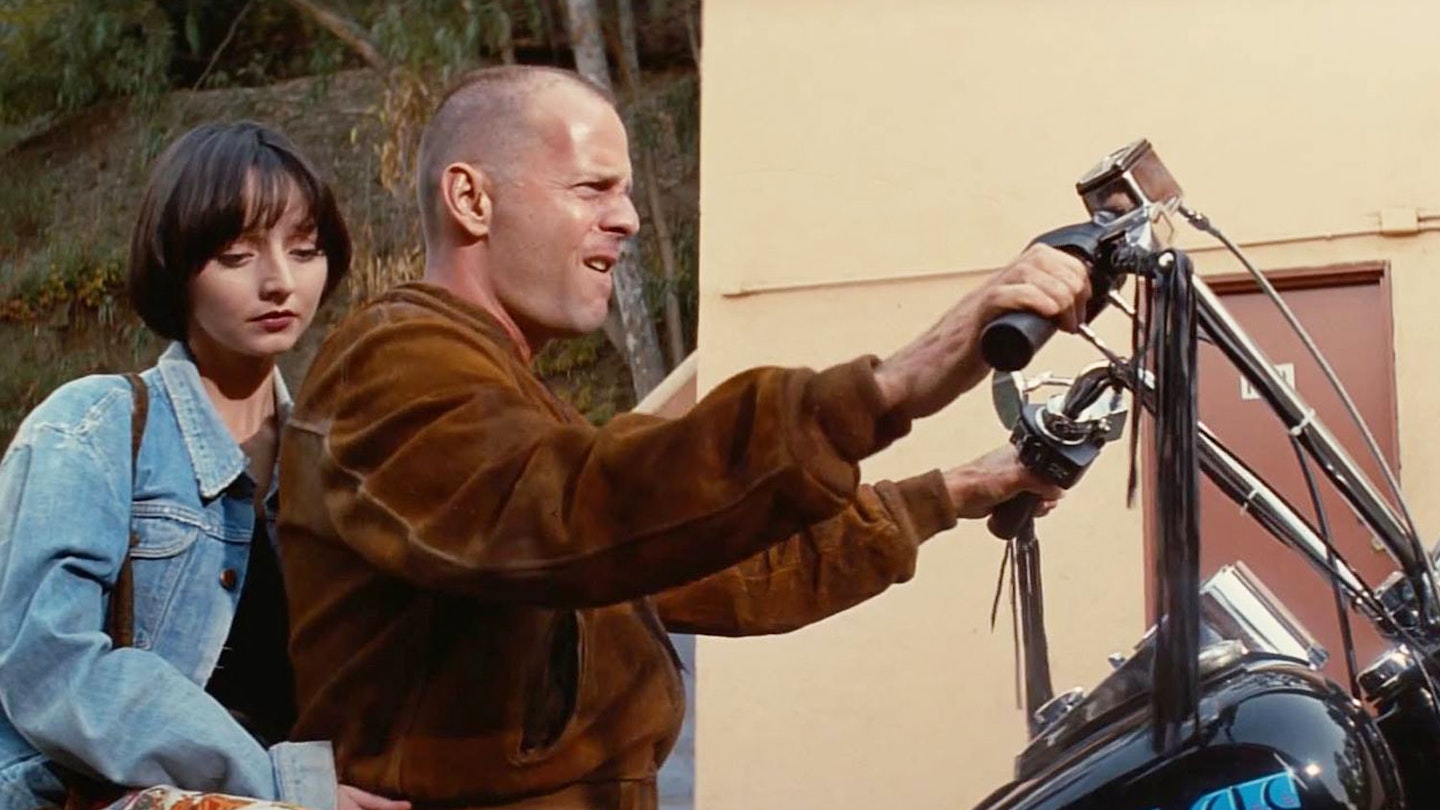 3 of 17
3 of 17Butch Coolidge (Pulp Fiction)
It should be unfair that Pulp Fiction is most closely associated with John Travolta, Samuel L. Jackson, and Uma Thurman, and not as much with Bruce Willis. Instead, it simply means that revisiting Tarantino's crime opus always results in an, 'Oh yeah, Bruce Willis is in this too!' moment. His central narrative chunk is a blast – Butch's tale is one of gold watches, gimp-suit torture, and surprise hitmen slayings. And Willis is a great fit for the heightened register of QT's movie-movie hyperreality, delivering old-school physicality and deadly cool in his embodiment of a former boxer fleeing the mob. "Zed's dead, baby. Zed's dead."Read the Empire review ofPulp Fiction.
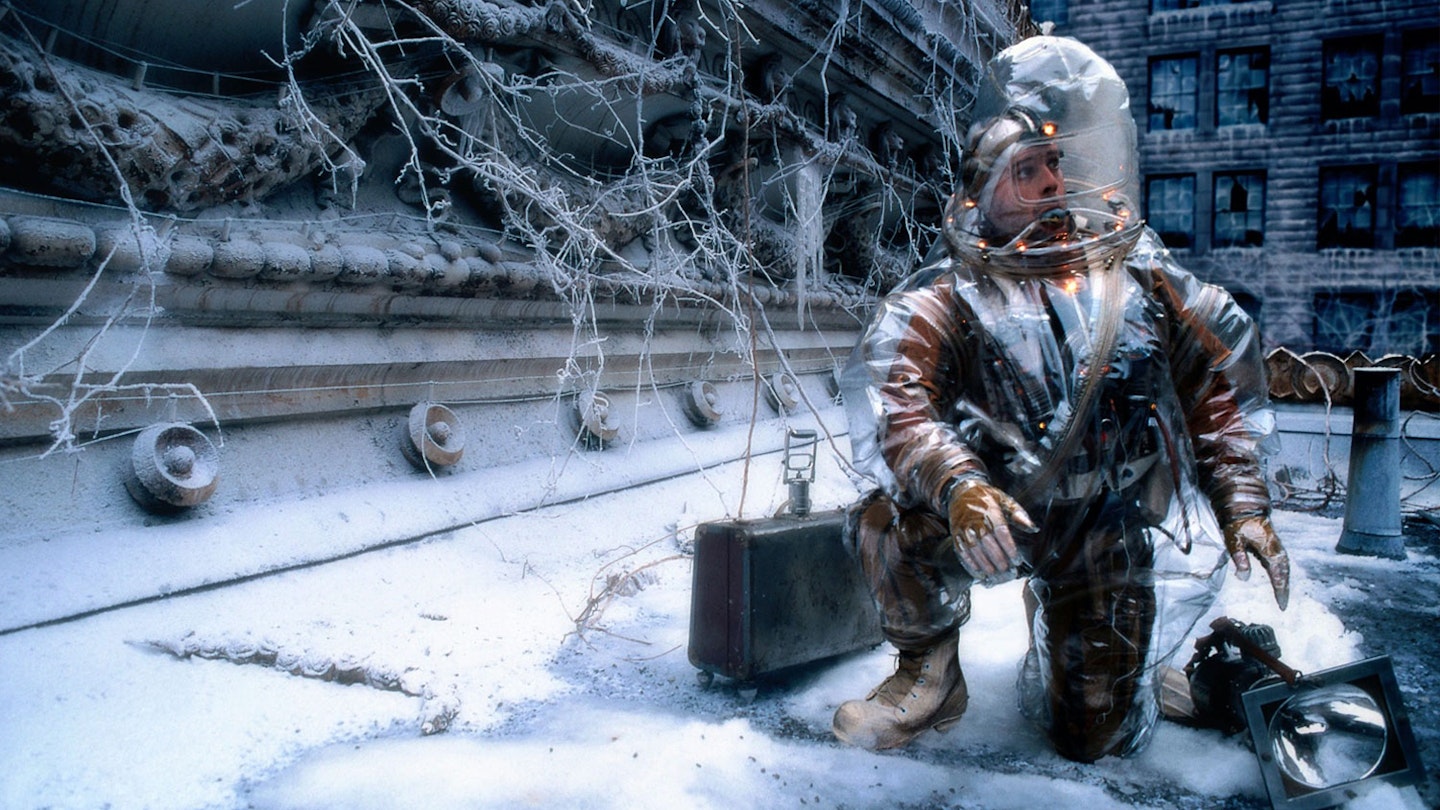 4 of 17
4 of 17James Cole (12 Monkeys)
Terry Gilliam demanded a lot from Bruce Willis for time-travelling mindbender 12 Monkeys: he would need to substantially downsize his usual fee, lose the cool, lose the smirk, lose the entirety of his hair… and it worked, resulting in a positively understated performance, especially opposite Brad Pitt's (admittedly entertaining) bag of tics. Gilliam got Willis at the peak of his powers, coming just a year after Pulp Fiction, and he's great: earthy, human, fully fleshed out. And as desperate and exasperated as his character James Cole is, Willis still bellows lines like "They sent me to the wrong year!" with utter conviction.Read the Empire review of 12 Monkeys.
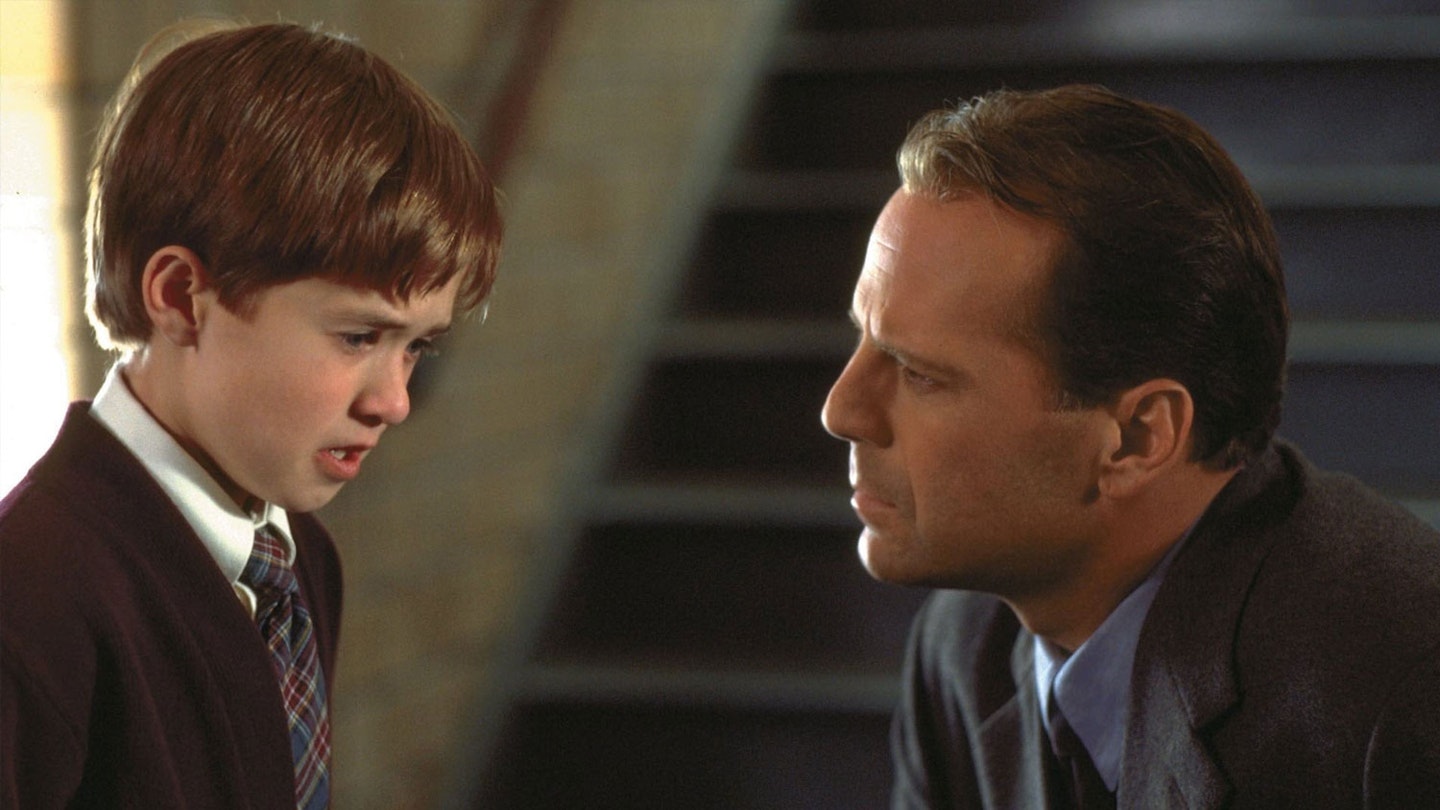 5 of 17
5 of 17Malcolm Crowe (The Sixth Sense)
Willis had played haunted, dramatic characters before: 12 Monkeys, for example. But Sense's Crowe is something else entirely — while we'll tiptoe around spoilers (for the benefit of the seven people who still don't know all the details), he's totally drained of the usual twinkle in Willis' eye, haunted and sallow as the psychologist assigned to help young Cole Sear (Haley Joel Osment). The kid is seeing dead people, and Crowe seems to be the only one who can get through to him. It's a masterful performance from Willis and shocking that he wasn't nominated for an Oscar.Read the Empire review ofThe Sixth Sense.
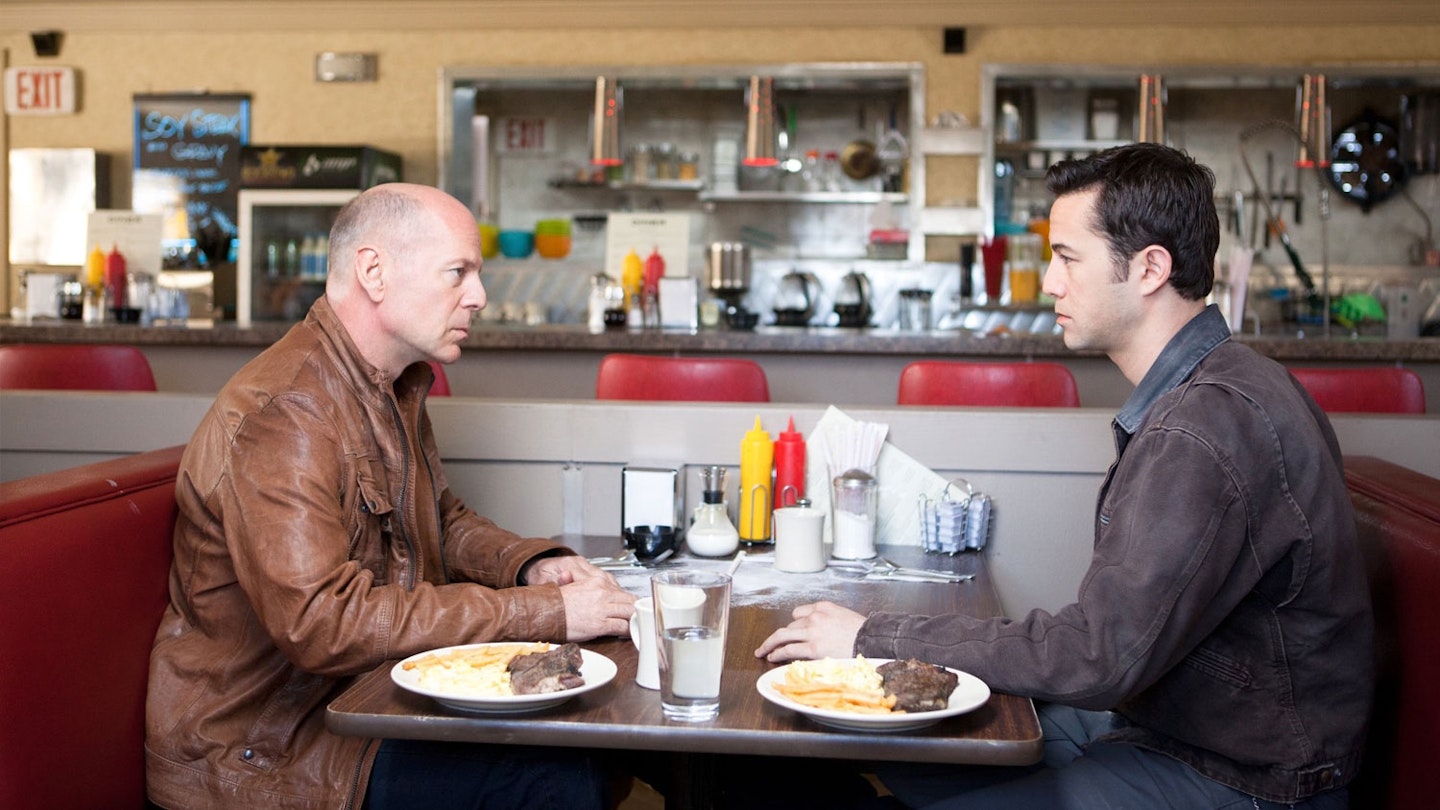 6 of 17
6 of 17Joe (Looper)
At first glance, Looper's Joe might look like a straight-up Bruce Willis action role. But Rian Johnson's time-twisting crime tale actually offers up one of the actor's most soulful performances – a man weighed down by his life of dealing out death (his younger self, played by Joseph Gordon-Levitt with Willis-esque makeup effects, sits in a cornfield and assassinates victims sent back from the future), who finds redemption through love before being crumpled by grief. Stuck in a futile loop of his own unwitting creation, Willis convinces as a tortured soul in paradoxical purgatory – and still nails the action moments when the bullets start flying.Read the Empire review ofLooper.
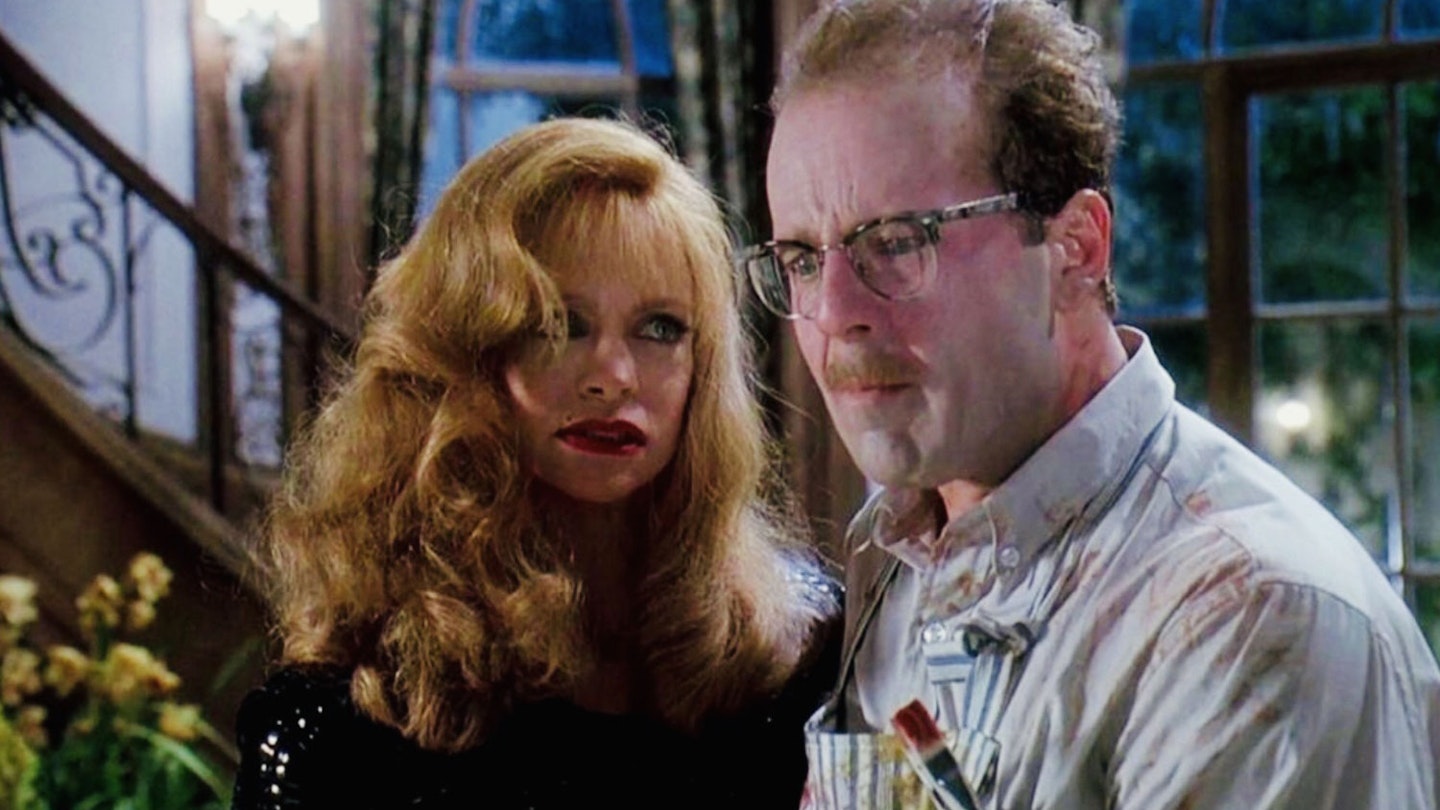 7 of 17
7 of 17Dr. Ernest Menville (Death Becomes Her)
Not all of Willis' stabs at comedy have worked, but he's on great form in Robert Zemeckis' typically effects-employing satire, playing a plastic surgeon caught between two women. The focus is on beauty, eternal youth, and the rivalry between Meryl Streep and Goldie Hawn, but Willis' Dr. Menville is a key component, skilled with the knife and able to help repair the ever-youthful women who nevertheless get into nasty scrapes (most famously Hawn shot through the middle with a shotgun, leaving a giant hole). His natural charm swapped for goofiness, Willis still makes his mark alongside an acting giant and a comic legend.Read the Empire review ofDeath Becomes Her.
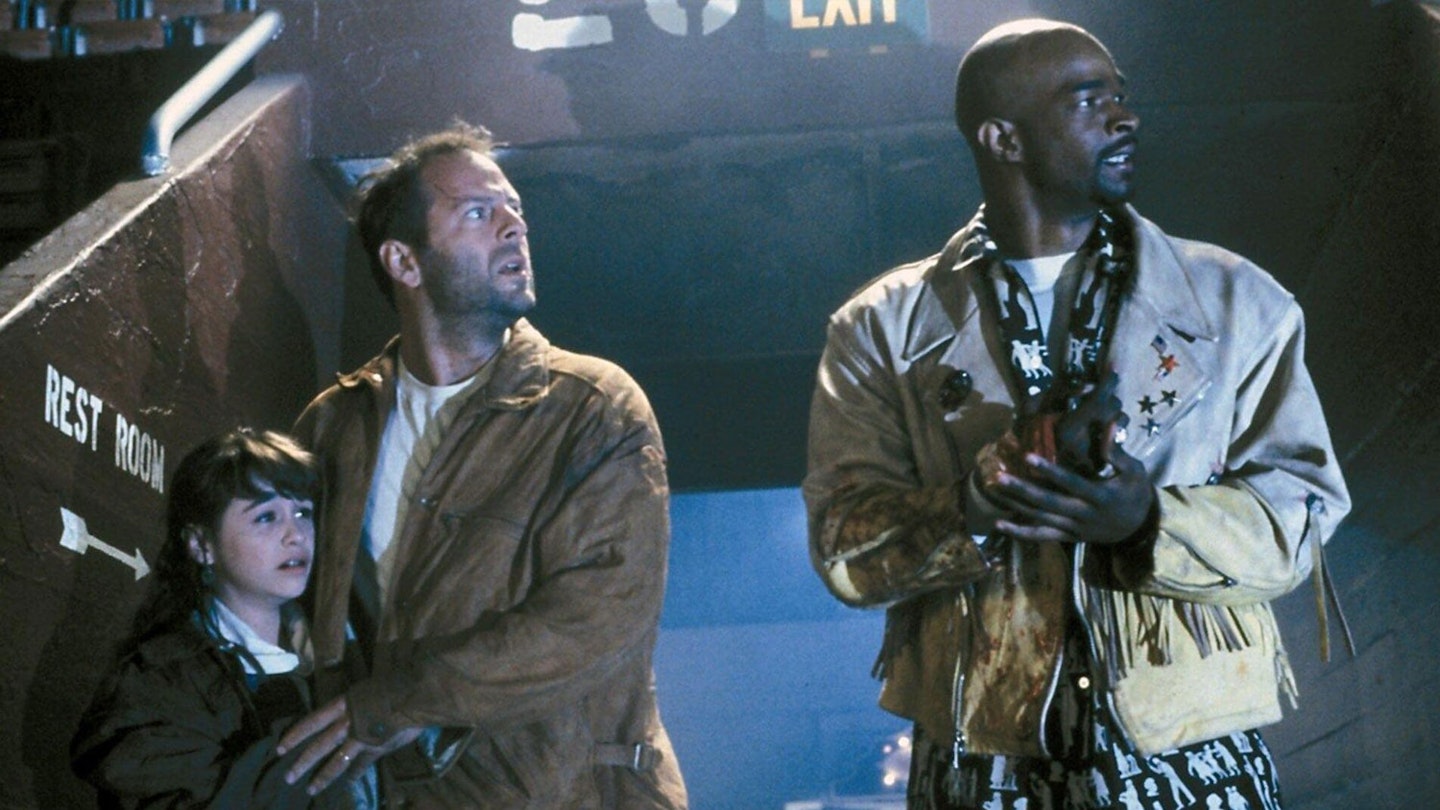 8 of 17
8 of 17Joe Hallenbeck (The Last Boy Scout)
Thought John McClane was world-weary? Meet Joe Hallenbeck. A sad shrug made flesh, Joe is a private detective so down on his luck that it would take a batshit criminal conspiracy to shake him out of his stupor. That's just what director Tony Scott and writer Shane Black had in store, teaming Joe up with former pro footballer Damon Wayans to take down… well, we won't ruin it, but sports gambling is involved. When the fun stops, stop, kids. The Last Boy Scout was something of a flop in 1991, but Black's dialogue is razor-sharp and hilarious; Scott marshals the action expertly; Wayans and Willis sparkle together, enough to lament the lack of a sequel; and Willis has, hands down, the coolest moment of his entire career as Joe sparks into action for one unforgettable moment. All we'll say is, touch him again, he'll kill ya. Read the Empire review ofThe Last Boy Scout.
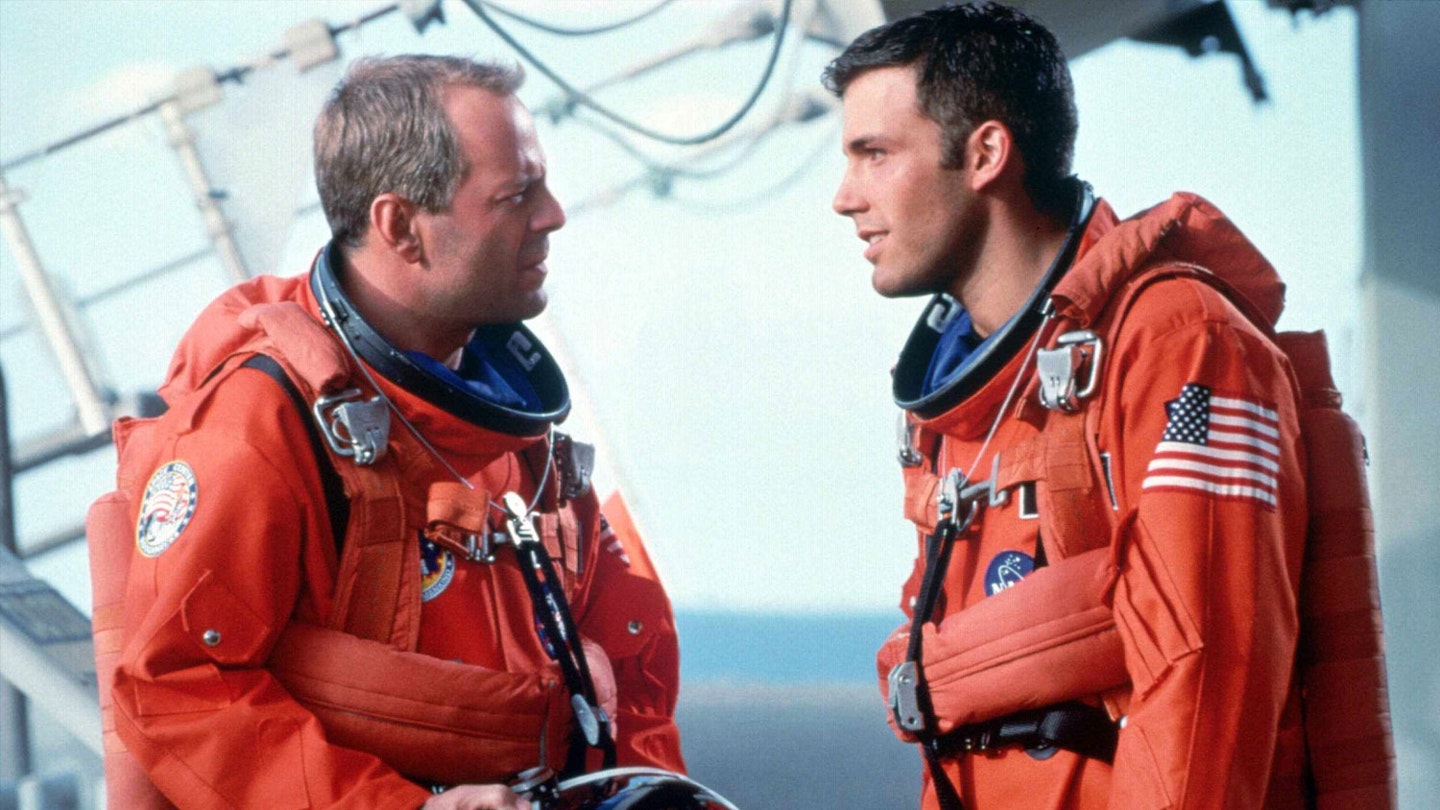 9 of 17
9 of 17Harry Stamper (Armageddon)
Armageddon sees Willis fitting squarely into the Michael Bay style, playing a grizzled, charming oil driller who, along with his team, is blasted into space to help destroy a giant asteroid. Harry Stamper is ironically a role the actor took in a deal after Disney agreed to absorb the costs of a failed movie called Broadway Brawler that Willis had been co-producing and starring in. You wouldn't know it — he never phones it in, and fully commits to the OTT atmosphere usually present in a Bay production.Read the Empire review ofArmageddon.
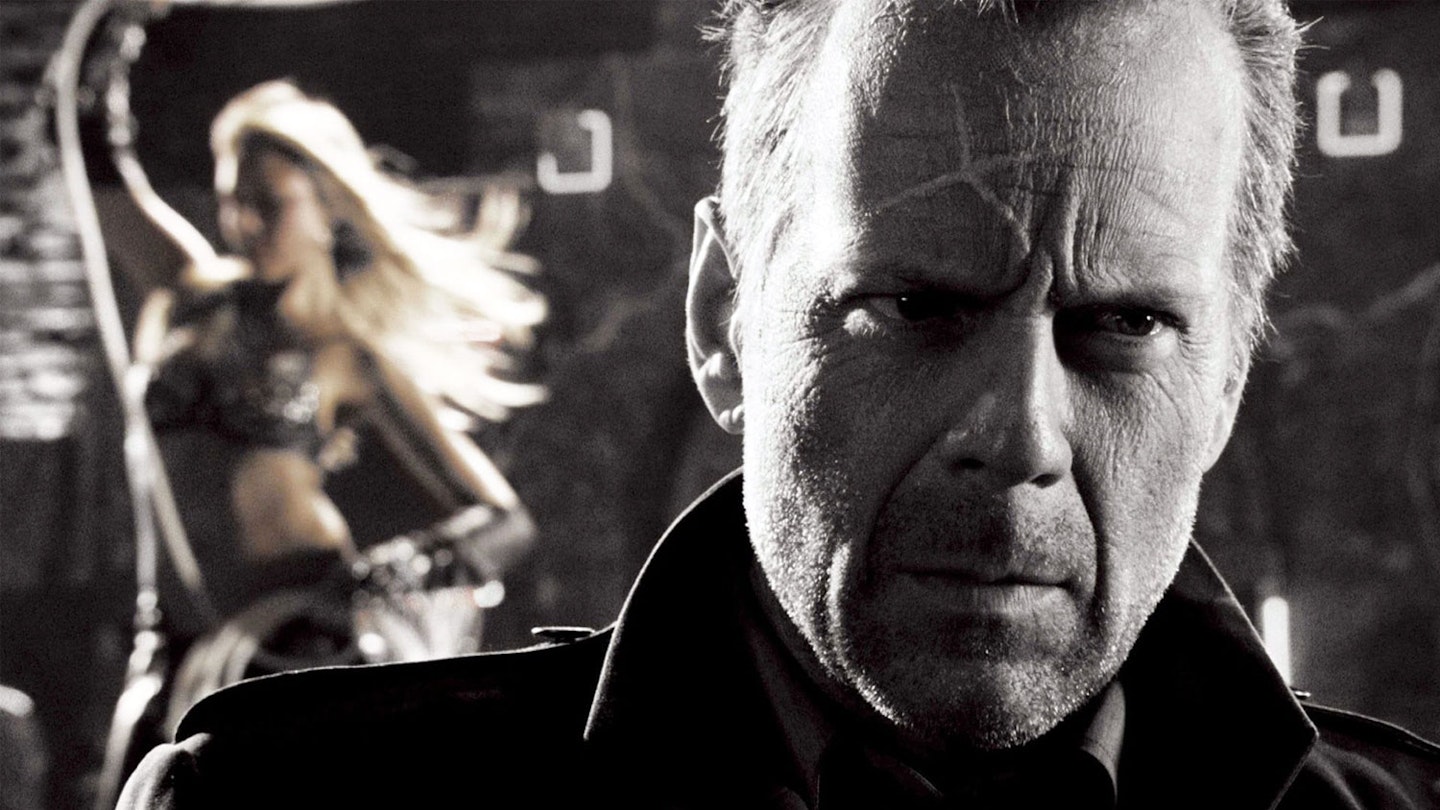 10 of 17
10 of 17Hartigan (Sin City)
"Hell of a way to start my retirement." Robert Rodriguez and Frank Miller's endlessly stylish monochrome film noir pastiche provided Willis with a role that played into his stoic, steely-eyed strengths. With a flowing trench coat and a forever grizzled expression – he truly perfects the 'Clint Squint' here, so-named after Clint Eastwood's famous gaze – Willis is perfectly cast as the good cop in a sea of bad apples. As a marquee star who often seemed plucked out of time, here was an opportunity for him to play in a timeless pulp fantasy. Read the Empire review ofSin City.
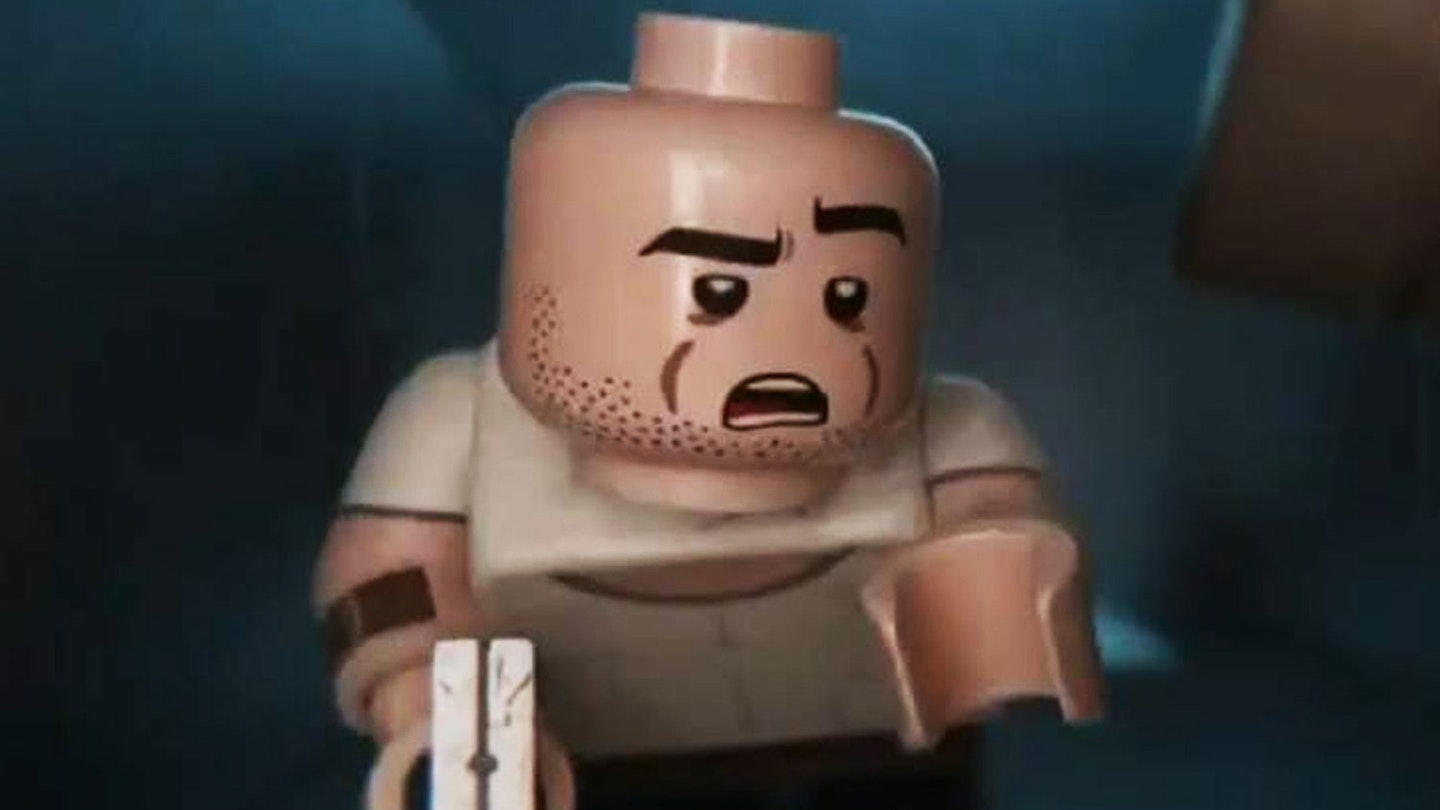 11 of 17
11 of 17Bruce Willis (The Lego Movie 2: The Second Part)
It's rare to see Bruce Willis play Bruce Willis. He did it once in the misfiring sequel Ocean's Twelve, and a couple of times on TV — but the most memorable meta-Willis moment comes in The Lego Movie's sequel, where he voices a toy version of himself, hiding in a very Die Hard-esque air vent. "I don't live up here!" he protests, a little too desperately. It's a tiny but hilarious cameo, proving if proof were needed that the ever-grimacing action hero was still able to laugh at himself.Read the Empire review ofThe Lego Movie 2: The Second Part.
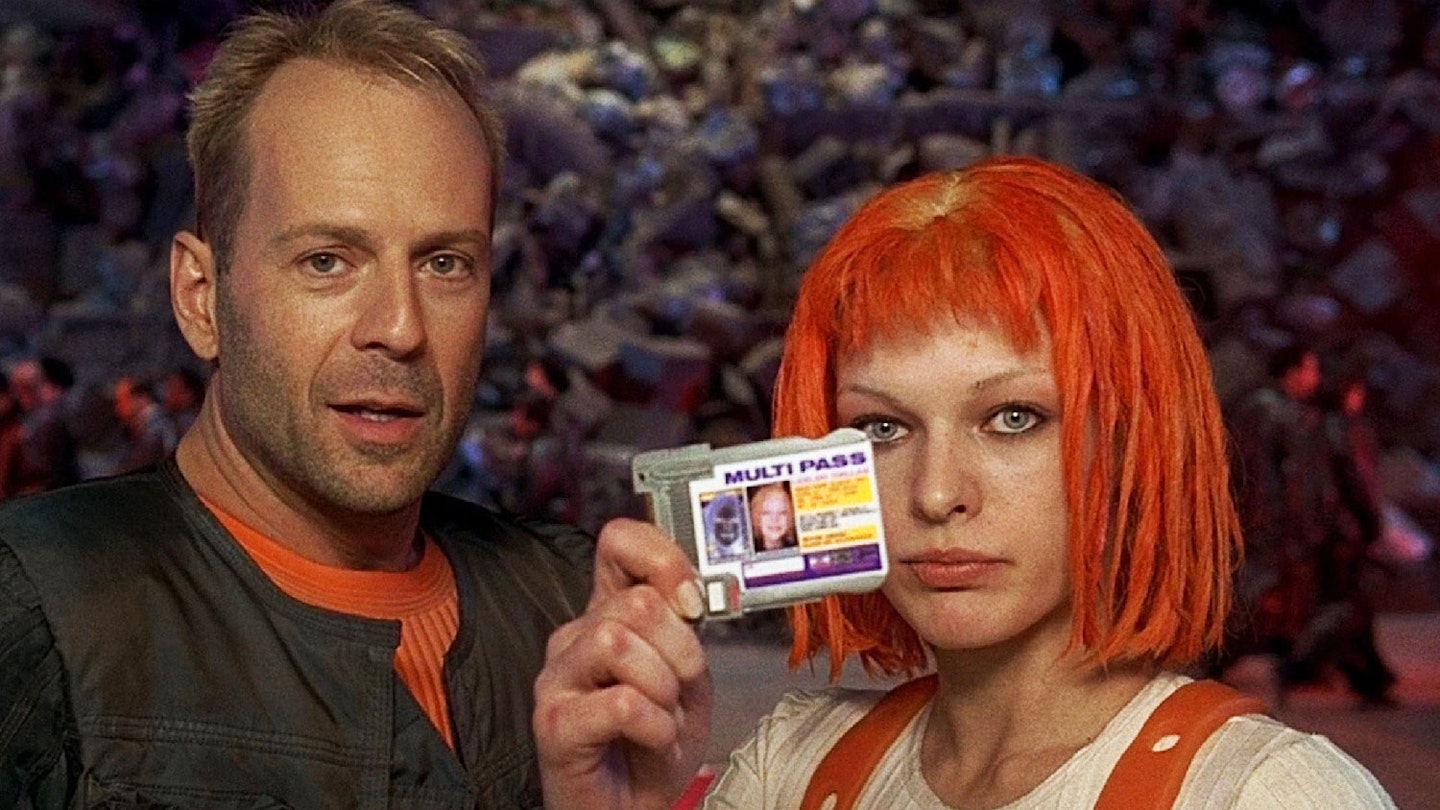 12 of 17
12 of 17Korben Dallas (The Fifth Element)
Willis' forages into science fiction tend to be grimy and intense. So it's a perpetual joy to witness him cutting loose in The Fifth Element, wearing a tangerine-coloured vest and rocking a blond barnet. Willis is, it must be said, not exactly believable as a humble-living taxi driver in any century, even the 23rd. But in a film with alien opera singers and Gary Oldman petting a space-aardvark, believability is no priority. Willis' performance is fun, effortlessly buoying the whole mad tale with breezy charm, whether bantering with Milla Jovovich's Leeloo or navigating his cab through the ultimate rush hour. If only he got to share a scene with Oldman, who gives a villain performance of Gruberian majesty.Read Empire's review ofThe Fifth Element.
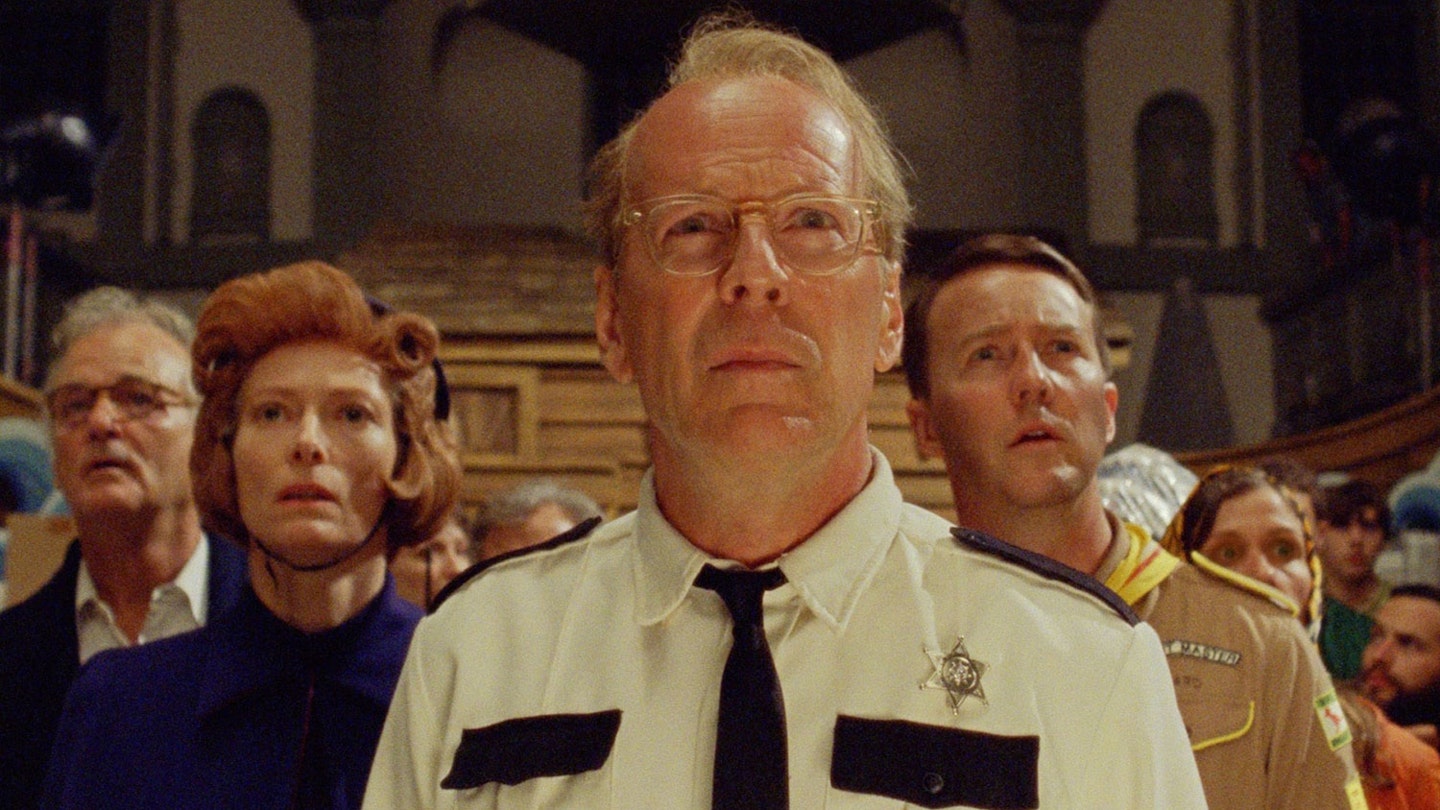 13 of 17
13 of 17Captain Sharp (Moonrise Kingdom)
Yet another way Willis showed he could break out of a pigeonhole he might have been forced into was taking a role in a Wes Anderson movie. The director had imagined Police Captain Duffy Sharp as a Jimmy Stewart type, though realised that Willis' history with police characters could play into the part in unexpected ways. As it turns out, he's a great, taciturn fit for the director's style, and while he didn't go on to become a regular Anderson ensemble member, this one worked well – an unusual but surprisingly fruitful meeting of distinctive talents.Read the Empire review ofMoonrise Kingdom.
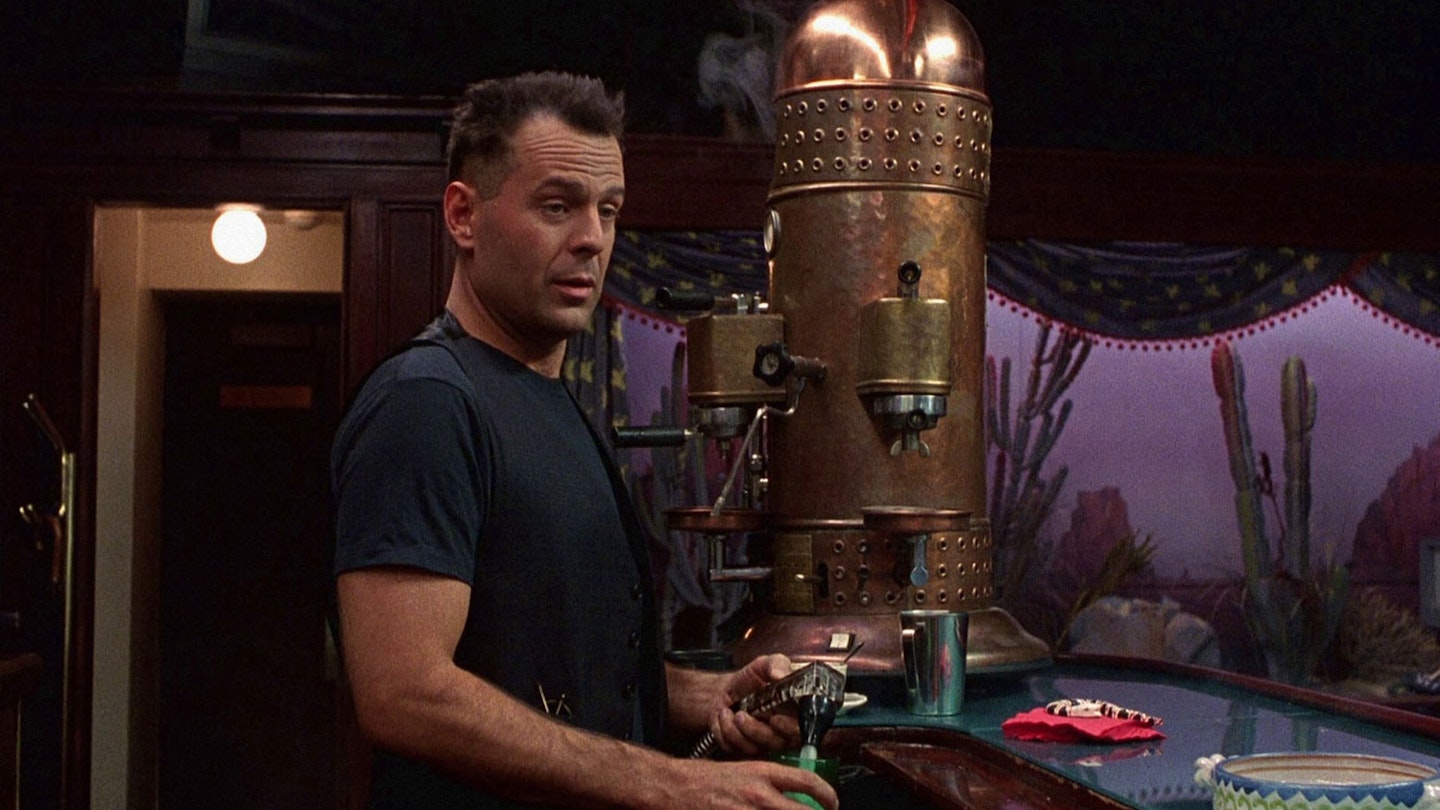 14 of 17
14 of 17Hudson Hawk (Hudson Hawk)
Hot off Die Hard 2 and looking for new artistic challenges, Bruce Willis entered his Experimental Phase. A true mauling awaited Hudson Hawk, the wildest swing of his career. "It's a film that needs to be experienced more than explained," Willis has said. An explanation for the bizarre, manic heist comedy remains elusive even three decades on. Based on a song that Willis wrote with his friend Robert Kraft, he plays a cat burglar who syncs his snatch-grabs to the sound of swing music. Amidst a blizzard of whacked-out weirdness (villains are named after candy bars, for one), he struts and smirks, delivering lines such as, "1-800-I'm-gonna-fuckin'-die!" It's a lot. And inarguably a mess. But for a glimpse inside the soul of Willis, who has his one and only writing credit on the film, it's essential viewing.Read the Empire review ofHudson Hawk.
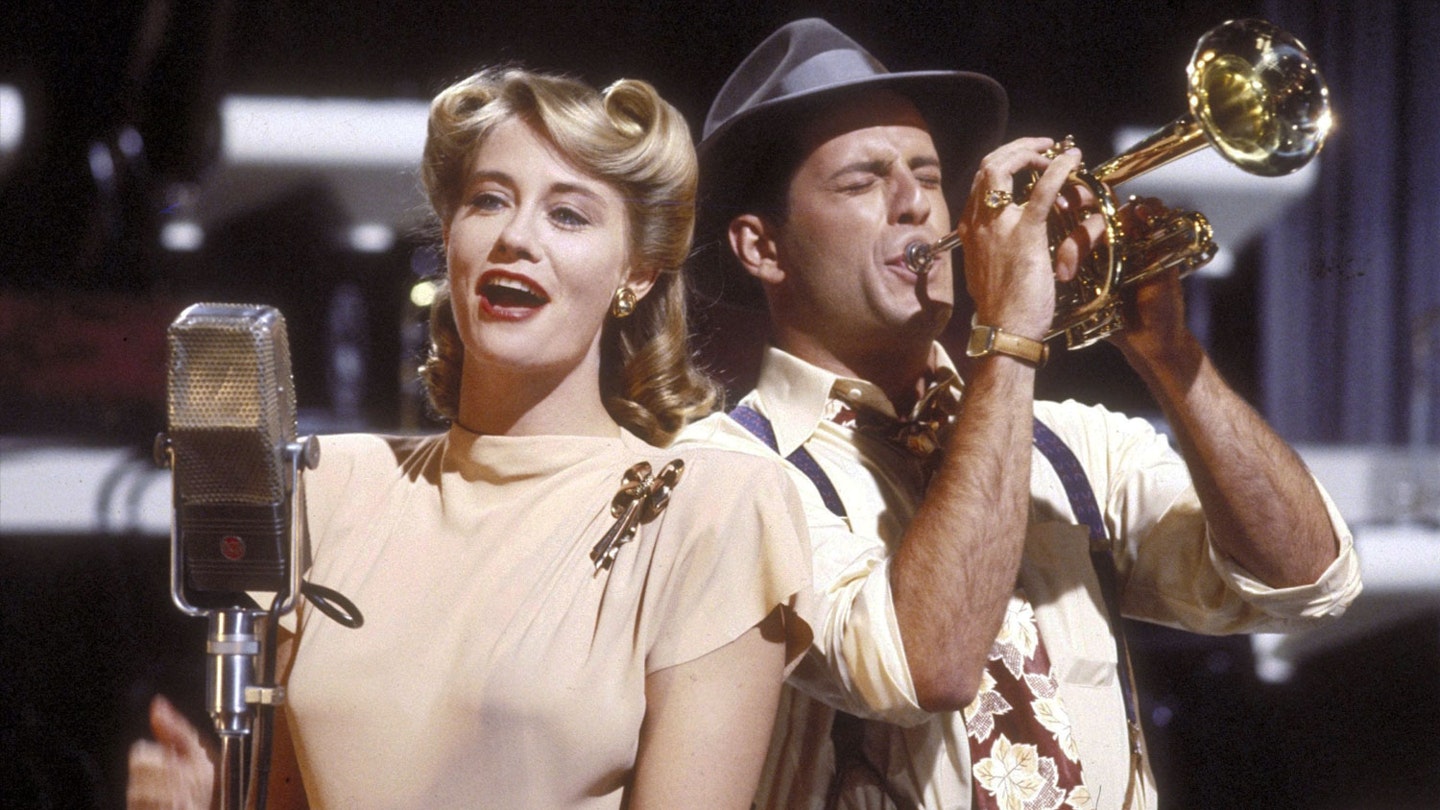 15 of 17
15 of 17David Addison Jr. (Moonlighting)
Bruce Willis' first high-octane, high-altitude action sequence was not in Die Hard, but in Moonlighting's 1985 pilot – when, searching for a clue atop Los Angeles' Empire clock tower, private dick David Addison and partner Maddie Hayes (Cybill Shepherd) dangle from a ladder way above the LA streets. The joy of Moonlighting was in just how much it let Willis do – between foiling criminal plots, there was wisecracking, dancing, fourth-wall-breaking, philosophising ("Do bees be? Do flies fly?"), flirting, trumpet-playing and much, much more. It proved the perfect delivery system for Willis' rumpled charms, the character with "the morals of a rabbit, the character of a slug, and the brain of a platypus" (to quote Maddie) setting him up perfectly for a big-screen career.
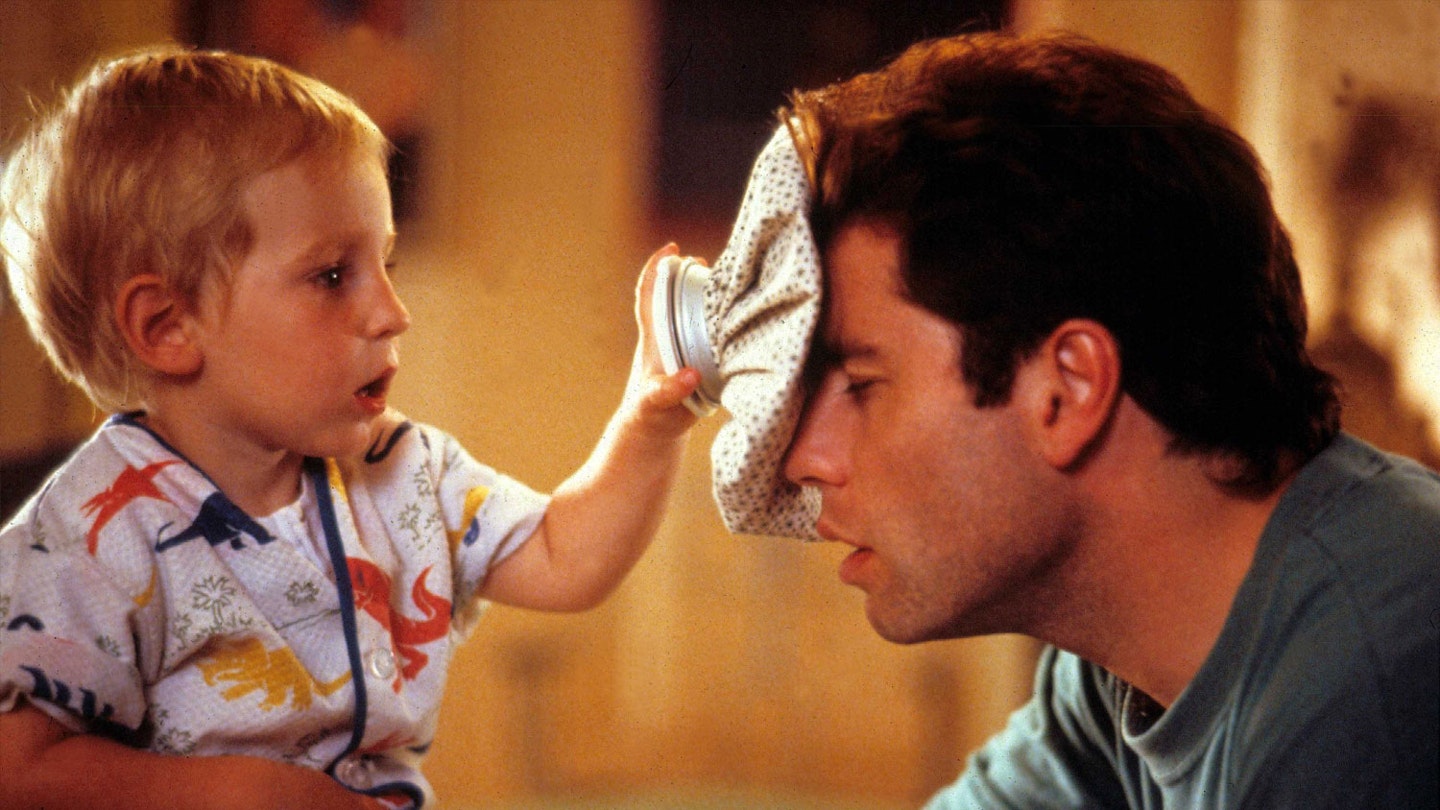 16 of 17
16 of 17Mikey (Look Who’s Talking)
Oh, to have been in the room when Willis was pitched this one: 'So, you'll be playing the voice of a wise-cracking baby…' Yet Look Who's Talking plays to his strength for comic timing, and his ability to deliver the gags without them seeming forced. The two Talking movies he's in might not exactly be high art, but they're very entertaining, Willis bouncing well off of the likes of Roseanne Barr (in the sequel). And director Amy Heckerling has recalled Willis improvising a lot of X-rated material that never made the final cut, which also goes on our wishlist of things we want to see (or hear).Read the Empire review ofLook Who's Talking.
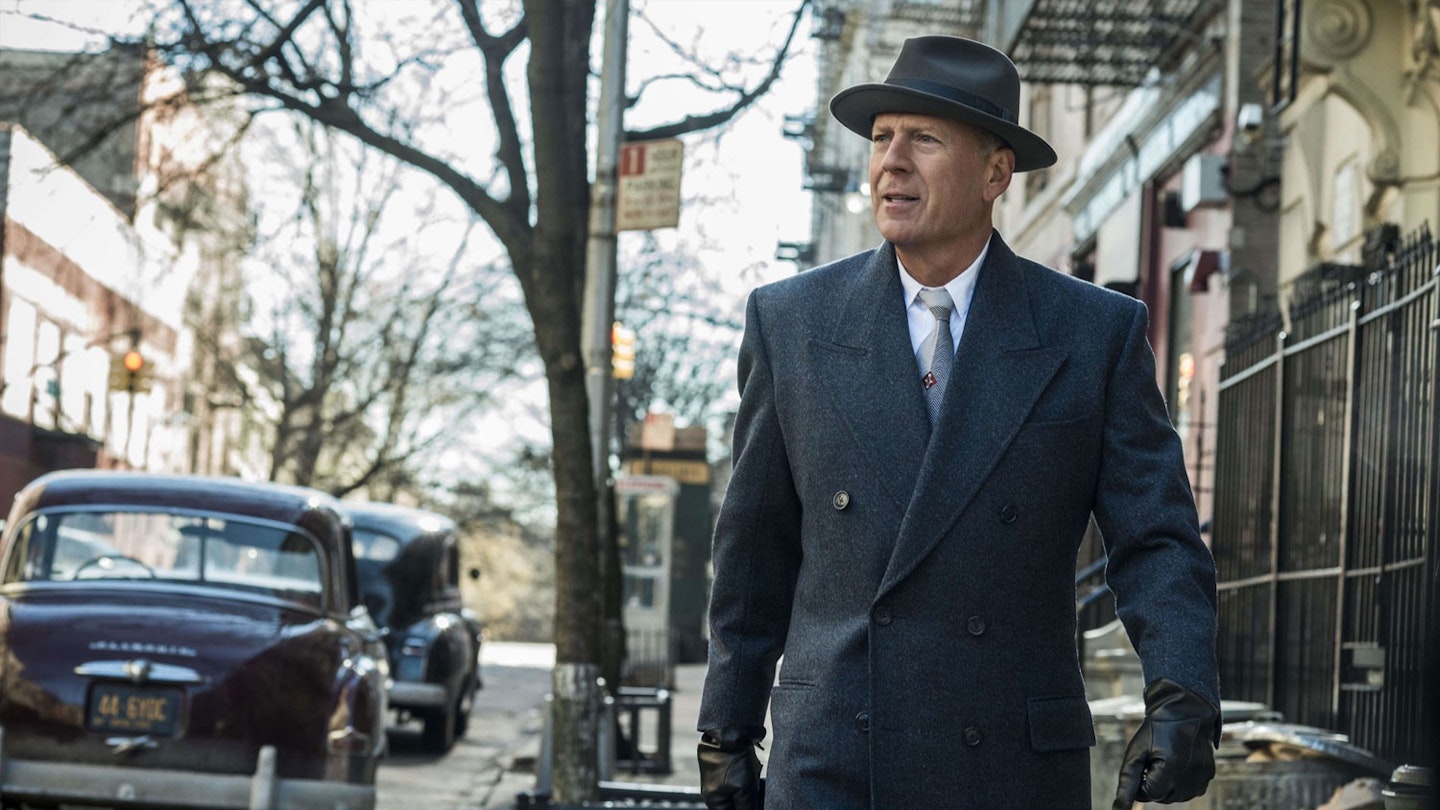 17 of 17
17 of 17Frank Minna (Motherless Brooklyn)
Writer/director/star Edward Norton credits Willis with helping to get Motherless Brooklyn made – a big name like his opened plenty of wallets after years stuck in development. Norton even offered a heartfelt thanks during a Comedy Central Roast of the actor. As Minna, mentor to Norton's New York detective Lionel Essrog, Willis gives the movie extra depth and emotional heft. Minna gets himself mixed up in a very dangerous case and pays the price... All the more effective because of how Willis plays him. It might just represent Willis' final truly great role.Read the Empire review ofMotherless Brooklyn.
